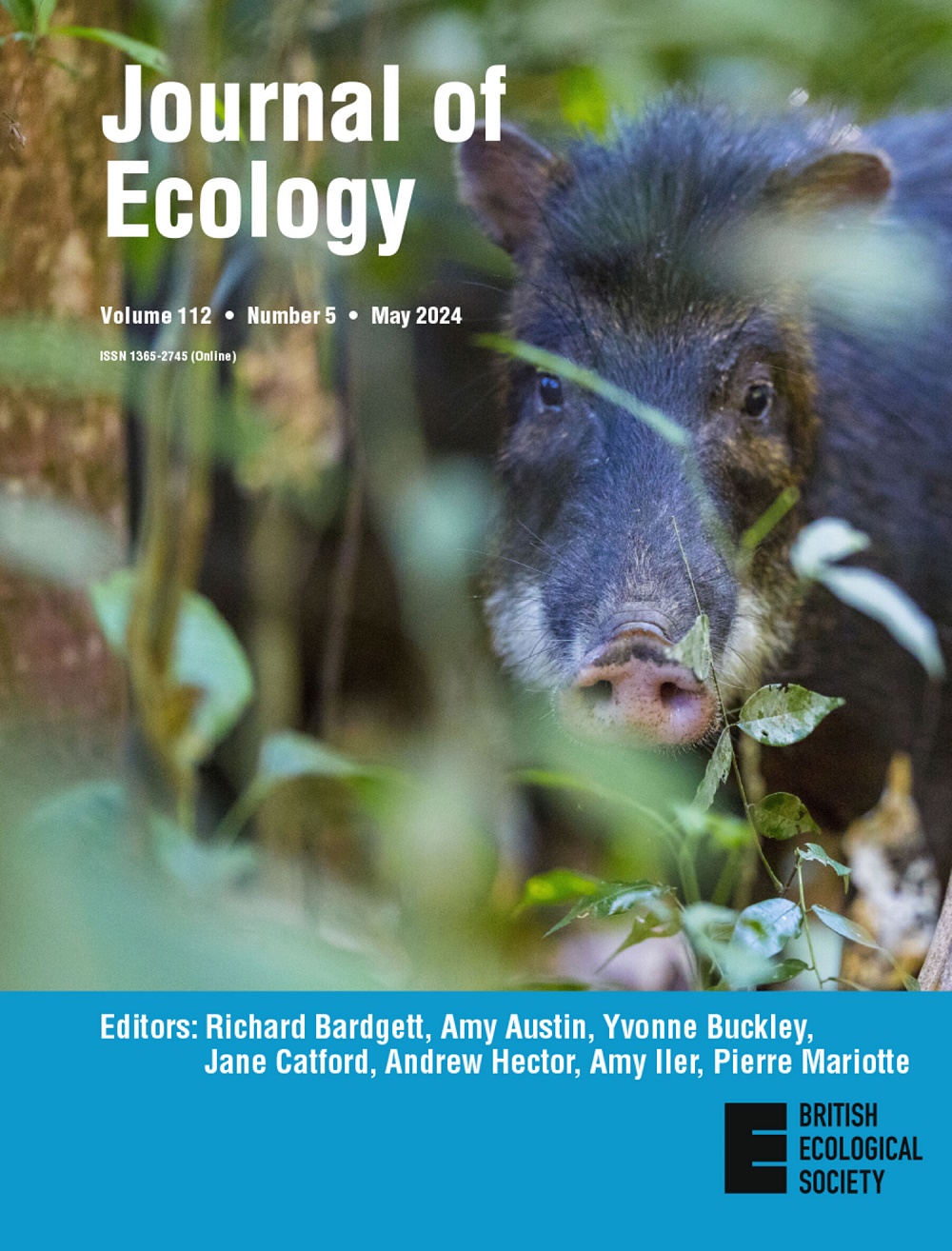根际和沉积物微生物群对模拟海洋热浪下海草生长性能的影响对比
IF 5.6
1区 环境科学与生态学
Q1 ECOLOGY
引用次数: 0
摘要
气候变化引起的温度胁迫正在影响陆地和水生生态系统中植物的生长性能和生存。对于陆生植物来说,地下微生物可以提高植物对环境胁迫的反应能力,最近的证据表明,海洋植物也有类似的作用。尽管如此,地下微生物增强海洋植物抵御气候变化引起的海洋热浪(MHWs)的潜力仍不清楚。海洋热浪是一种全球范围内频率和强度都在增加的海洋温度压力。本研究通过根灭菌和沉积物高压灭菌的方法,实验控制了细纹小藻根际和沉积物中的微生物群落,以确定它们在两种海洋热浪情景下对海草生长和生存的影响:最近的MHW剖面和本世纪末的情景。根际微生物群被破坏的海草在所有温度和沉积物处理下都表现出生长下降的趋势。相比之下,在未来的海洋热浪情景下,完整的大块沉积物微生物组阻碍了植物的生长,这些群落的破坏对植物的性能有积极的影响。未来的海洋热浪处理在散装沉积物中潜在有益微生物(即Akkermansiaceae)的相对丰度较低,并且富含潜在的植物病原体(即Xanthomonadaceae)。此外,在完整的块状沉积物中,植物根际中潜在的植物生长促进细菌的相对丰度较低。合成。本研究提供了实验证据,表明海洋热浪可以通过改变大量沉积物微生物群对海草的性能产生负面影响,而根际微生物群对植物的益处可能不足以克服这种影响。我们的实验首次强调了地下微生物如何影响海草对热应激的反应。此外,我们的研究结果强调了在未来的海草研究中需要考虑地下微生物的相互作用,并表明微生物群落的变化可能在海草对气候变化的适应能力中发挥作用。这些见解可能对恢复工作至关重要,因为将地下微生物群落整合到海草管理策略中可能会提高在不断变化的环境条件下恢复计划的成功率。本文章由计算机程序翻译,如有差异,请以英文原文为准。




Contrasting effects of rhizosphere and sediment microbiota on seagrass performance in response to a simulated marine heatwave
求助全文
通过发布文献求助,成功后即可免费获取论文全文。
去求助
来源期刊

Journal of Ecology
环境科学-生态学
CiteScore
10.90
自引率
5.50%
发文量
207
审稿时长
3.0 months
期刊介绍:
Journal of Ecology publishes original research papers on all aspects of the ecology of plants (including algae), in both aquatic and terrestrial ecosystems. We do not publish papers concerned solely with cultivated plants and agricultural ecosystems. Studies of plant communities, populations or individual species are accepted, as well as studies of the interactions between plants and animals, fungi or bacteria, providing they focus on the ecology of the plants.
We aim to bring important work using any ecological approach (including molecular techniques) to a wide international audience and therefore only publish papers with strong and ecological messages that advance our understanding of ecological principles.
 求助内容:
求助内容: 应助结果提醒方式:
应助结果提醒方式:


